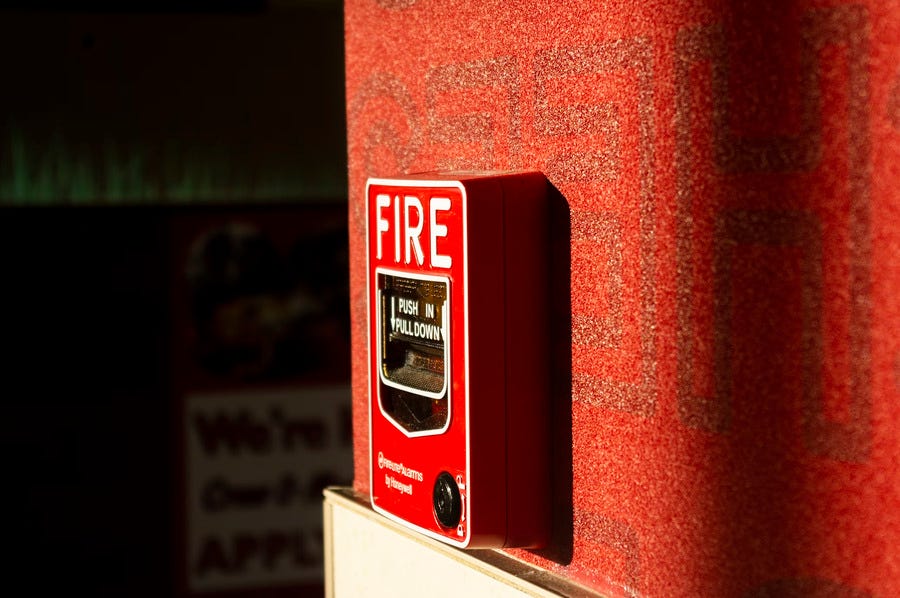When the Fire Alarm Is in Your Head
What burnout really sounds like for founders.
A few years ago, I started hearing a strange sound, a faint ringing in my ears, like a distant fire alarm.
It would happen in random places: during coffee meetings, on walks, in the middle of a workday. I’d ask the person I was with, “Do you hear that?” They didn’t.
Then came another sensation: a tingling feeling across my scalp, like static electricity or when your foot falls asleep. It was so odd that I convinced myself something had to be seriously wrong.
I went to a neurologist, got a full workup, and braced for the worst. After the tests, he looked at me and said, “There’s nothing physically wrong with you. You’re just burned out. Here’s some anxiety medication.”
That hit hard, mostly because I hadn’t realized how far I’d pushed myself. I hadn’t taken a single day off in six weeks. No real rest. No pause. Just constant motion disguised as productivity.
That was the first time burnout showed up as something physical, but it wasn’t the last time I hit the wall. I’ve burned out a few times since then, and what’s humbling is that even when I knew better, I still fell back into the same patterns.
That’s the thing about burnout. It doesn’t care how self-aware you think you are. It sneaks in quietly, especially when your startup is growing, your team depends on you, and the stakes feel high.
Founders often mistake adrenaline for energy, pressure for purpose, and exhaustion for commitment. But the truth is, you can’t out-work your nervous system. If you don’t build real rest into your rhythm, your body will eventually force it on you.
Burnout isn’t a moral failure. It’s feedback. It’s your body saying, “You can’t keep driving with an empty tank.”
So if you’ve been feeling the early warning signs: the tension that never fully goes away, the ringing in your ears, the edge that’s getting sharper, take it seriously.
Not with another productivity hack. Not with another late-night brainstorm. But with space.
A real break.
A reset.
A reminder that you’re human before you’re a founder.
Because the next time the fire alarm goes off, it might not be outside your head; it might be inside it.





